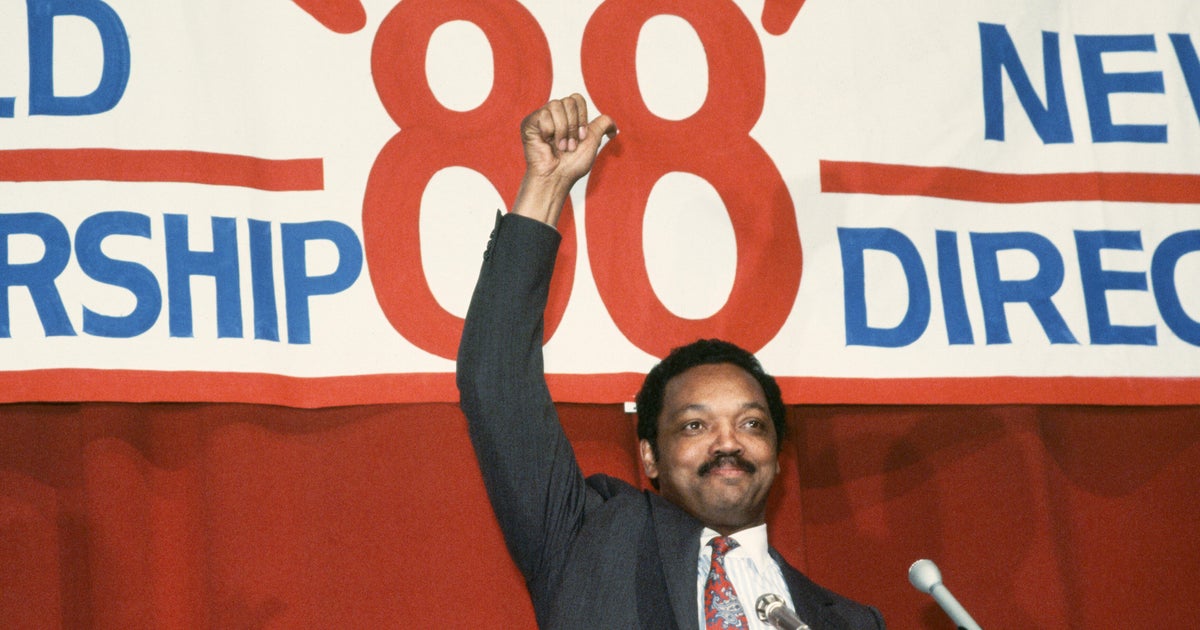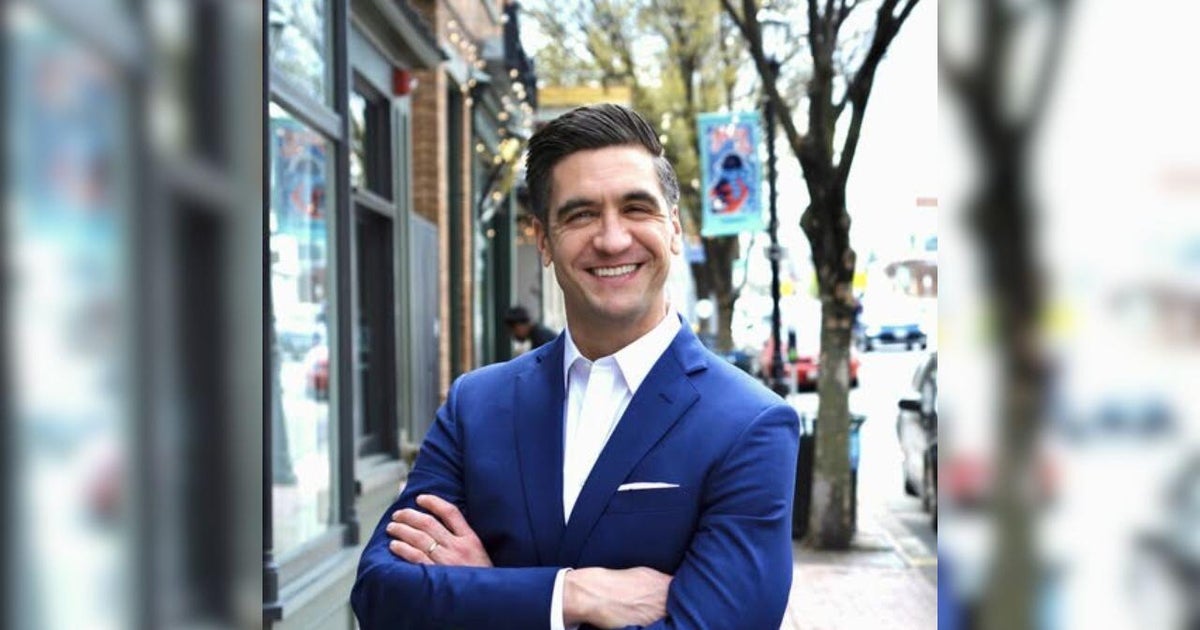Tough Economic Climate As Obama Seeks 2nd Term
WASHINGTON (AP) -- President Barack Obama faces a long re-election campaign having all but given up on the economy rebounding in any meaningful way before November 2012. His own budget office predicts unemployment will stay at about 9 percent, a frightening number for any president seeking a second term.
Obama's prospects aren't entirely grim, however. The GOP, heavily influenced by the tea party, may nominate someone so deeply flawed or right-leaning that, Democrats hope, Obama can persuade Americans to give him a second chance rather than risk the alternative.
Democrats say the man who ran on hope and change in 2008 will have to claw his way toward a second term with a sharply negative campaign.
The strengths and weaknesses of his prospects seem clear.
Next year's unemployment rate is likely to be the highest in a presidential election since 1940. But the leading Republican contenders have denigrated Social Security, switched positions on critical issues and done other things that might make them ripe targets for Obama's well-funded campaign.
Democratic strategist Doug Hattaway says GOP candidates, including Texas Gov. Rick Perry and former Massachusetts Gov. Mitt Romney, may turn off independent voters with their embrace of tea party stands on taxes, spending and program cuts.
Obama "should lump them all together and make them answer for their slash-and-burn politics," said Hattaway, a former top aide to Hillary Rodham Clinton, Obama's rival for the 2008 Democratic presidential nomination.
To do so, Hattaway said, Obama must link the candidates to congressional Republicans, blamed by Democrats for the nation's stalled job growth and recent downgrade of U.S. creditworthiness.
Making the connection might not prove easy.
Obama's potential challengers have avoided getting dragged into details of the bitter Capitol Hill fights over deficit spending. At least for now, they can lob criticisms at the president while offering few specific, measurable alternatives.
"President Obama oversaw an economy that created zero jobs last month, and that is unacceptable," Romney said Friday.
But the influence of the tea party and other conservative groups may give Obama some openings, by pushing the GOP field so far to the right that the candidates risk alienating vital independent voters.
In a debate last month, the top contenders pledged to oppose a deficit-reduction plan even if it cut $10 in spending for every $1 raised by new taxes. Perry, who entered the race after that debate, also has taken a tough stand against higher taxes.
Obama's team says independents, who might pay scant attention to ideologically driven primaries, will find such positions extreme when they compare the eventual GOP nominee and the president.
Political aide David Axelrod hinted that Obama will try to sharpen his differences with Republicans who insist on spending cuts in virtually every area and who refuse to let tax cuts expire, as scheduled, for the wealthiest.
It's hard "to create an economy in which people can get decent jobs and raise a family at the same time we're cutting back on our commitment to spending on education and research and development that will create innovation and jobs," Axelrod said in an interview.
The Republicans' "essential message is, let's go back to the policies that helped get us in this mess," he said, citing Wall Street deregulation and corporate tax breaks.
If GOP lawmakers, backed by the presidential hopefuls, continue to thwart Obama's bid to mix targeted spending cuts with tax increases, Axelrod said, "we're going to take our case to the American people."
Recent polls underscore Obama's challenge. A Pew Research poll found that 39 percent of independents approve of his job performance, while 52 percent disapprove.
An AP-GfK poll showed a sharp erosion of support for Obama among white voters and women. Less than half of all women and less than half of all men approve of the job he's doing, and only 50 percent of women say he deserves re-election.
But the same polls show that far more voters blame former President George W. Bush more than Obama for the nation's economic woes. Whether that sentiment lingers for 16 more months could prove crucial.
Hattaway said Obama must start by winning back moderates and motivating "millennials," voters in their 20s and early 30s.
"The economy is not going to come roaring back before the election, so he has to give them a vision" for a future with jobs and with social justice for groups, including gays, Hattaway said.
Obama also must try to minimize the frustration among his liberal base supporters, many of whom feel he is too quick to compromise. Some complained loudly Friday when Obama yanked a proposal to tighten federal smog standards.
Questions about the environment, war and foreign affairs will figure into the 2012 race. But all parties agree jobs are the overriding issue.
Analysts differ on what level of unemployment is politically fatal.
President Ronald Reagan handily won re-election in 1984 with unemployment at 7.2 percent, which was down slightly from the rate at the start of his term. President Jimmy Carter lost when unemployment was at 7.5 percent and President George H.W. Bush lost with a similar level, but both faced other problems as well.
Hopeful Democrats say Obama can survive next year if people feel growth is coming soon. Another way to survive is uglier: admitting the economy is a mess, but pressing the case that the GOP alternative is so unacceptable that the incumbent should stay in office, even with no recovery in sight.
Obama's aides say the election will be "a choice, not a referendum." That hints at a bruising effort to divert attention from the president's record and focus on what the Obama campaign believes are the GOP nominee's chief shortcomings.
Democratic optimists feel the GOP nominating process will play into that strategy. The Democratic National Committee issues a steady stream of statements and videos with headlines such as "Romney makes move to embrace Tea Party."
Several Republican candidates, including Romney, Minnesota Rep. Michele Bachmann and Perry, are proven vote-getters at the state level. Soon they will show whether they can handle the scrutiny and grind of a presidential campaign.
Democrats say their records provide much to use against them.
Perry, for instance, has called Social Security "a Ponzi scheme," and said climate change is a "contrived phony mess."
Romney switched his position on abortion, gay rights and gun control after leaving the Massachusetts governor's office and seeking the Republican presidential nod. He also is criticized for his role in Bain Capital, a corporate takeover firm that eliminated jobs in some cases but expanded them in others.
Bachmann has spent only three terms in the House; the last member to go directly to the White House was James Garfield, elected in 1880. If Sarah Palin decides to run, she will be asked why she quit her job as Alaska's governor with more than a year left in her term.
(© Copyright 2011 The Associated Press. All Rights Reserved. This material may not be published, broadcast, rewritten or redistributed.)







